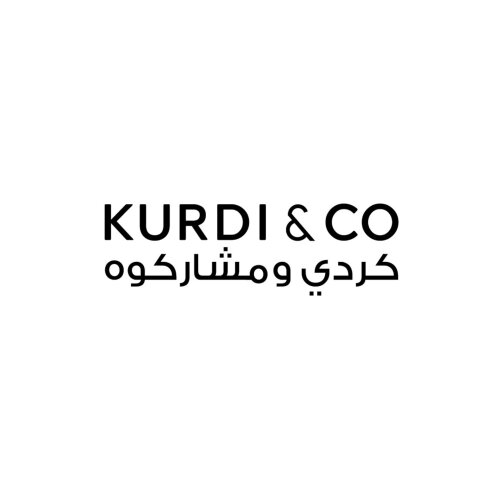Best Energy Regulatory Law Lawyers in Palestine
Share your needs with us, get contacted by law firms.
Free. Takes 2 min.
Or refine your search by selecting a city:
List of the best lawyers in Palestine
About Energy Regulatory Law in Palestine
Energy Regulatory Law in Palestine is a specialized legal field that governs the production, distribution, consumption, and regulation of energy resources such as electricity, gas, and renewable sources. Due to Palestine's unique political and economic circumstances, the sector is subject to various laws, regulations, and bilateral agreements. The legal framework aims to ensure the efficient and fair distribution of energy, promote sustainability, encourage investment, and secure consumers' rights. Regulatory bodies like the Palestinian Energy and Natural Resources Authority (PENRA) play a crucial role in supervising the sector and implementing policies aligned with national interests.
Why You May Need a Lawyer
Engaging with Energy Regulatory Law in Palestine can be complex due to multiple regulations, technical requirements, and interactions with public authorities. Common situations where legal help may be necessary include:
- Negotiating power purchase agreements
- Securing licenses for energy generation or distribution
- Dealing with disputes over tariffs or grid access
- Establishing renewable energy projects and navigating permits
- Ensuring environmental compliance
- Challenging administrative decisions or regulatory fines
- Addressing issues with cross-border energy imports or exports
A skilled lawyer can help individuals, businesses, and organizations understand their rights, fulfill regulatory requirements, and protect their interests in this vital sector.
Local Laws Overview
Key elements of Energy Regulatory Law in Palestine include:
- Regulatory Framework - The main regulatory body is PENRA, which oversees licensing, tariff setting, and supervision of the sector. Supporting bodies include the Palestinian Electricity Regulatory Council (PERC).
- Licensing Requirements - Any entity seeking to generate, distribute, or sell energy must obtain relevant licenses in accordance with national laws and policies.
- Tariff and Pricing Policies - Prices for electricity and other energy sources are often regulated to protect consumers and ensure fair returns for suppliers. Dispute mechanisms exist for challenging unfair tariffs.
- Grid Access - Rules govern how generators and consumers connect to the national or regional grid, including procedures for renewable energy sources such as solar or wind power.
- Environmental and Safety Regulations - Projects must comply with national environmental standards and obtain clearances before development.
- Consumer Rights - Regulations exist to protect consumers from unfair disconnections, ensure quality of service, and resolve complaints.
- International and Regional Agreements - Palestine participates in various agreements related to energy importation, especially electricity and fuel from neighboring countries. These agreements may impact local regulation and legal obligations.
These laws and guidelines are constantly evolving, reflecting changes in both the local energy market and wider geopolitical realities.
Frequently Asked Questions
What is the main regulatory body for the energy sector in Palestine?
The primary regulatory authority is the Palestinian Energy and Natural Resources Authority (PENRA), supported by other agencies like the Palestinian Electricity Regulatory Council (PERC).
Do I need a license to operate an energy business in Palestine?
Yes, all companies or individuals involved in generation, distribution, or supply of energy need to obtain specific licenses from the authorities.
How are electricity tariffs determined?
Tariffs are set by regulatory bodies based on costs, investment needs, and consumer protection principles. There is a formal process for approving and reviewing tariffs.
Can I set up a solar or wind energy project as a private individual or business?
Yes, though you must comply with licensing, grid access, and environmental regulations to establish a renewable energy project legally.
What should I do if I have a complaint against my electricity supplier?
Consumers can file complaints with the relevant distributor and, if unresolved, elevate the matter to PERC, which oversees consumer protection and dispute resolution.
Are there incentives for investing in renewable energy in Palestine?
Yes, the government has introduced several incentives, such as tax reductions and streamlined permitting, to encourage the development of renewable energy projects.
How are disputes between energy companies and regulatory bodies resolved?
There are formal administrative processes, and disputes can be taken to the courts if not resolved through regulatory channels.
Is cross-border electricity importation regulated?
Yes, the import and export of electricity and other energy resources are subject to international agreements and approval from national authorities.
What environmental regulations must energy projects comply with?
All energy projects must undergo environmental impact assessments and obtain permits to ensure compliance with national environmental standards.
Do local municipalities have any regulatory role in the energy sector?
Local authorities may manage distribution within their jurisdictions or enforce local ordinances, but primary regulatory power rests with national bodies like PENRA and PERC.
Additional Resources
If you are seeking more information or require assistance regarding Energy Regulatory Law in Palestine, the following resources may be useful:
- Palestinian Energy and Natural Resources Authority (PENRA)
- Palestinian Electricity Regulatory Council (PERC)
- Ministry of Local Government for municipal coordination
- Environmental Quality Authority for environmental compliance
- Local legal aid organizations with expertise in energy law
- Chambers of commerce and industry associations with energy subcommittees
Next Steps
If you need legal assistance in Energy Regulatory Law in Palestine, consider the following steps:
- Identify your specific concern or legal need, whether it is licensing, contracts, disputes, or regulatory compliance.
- Gather all relevant documents, including agreements, permits, correspondence from authorities, and any applicable evidence.
- Contact a lawyer or legal specialist with expertise in energy regulatory matters. If you are unsure how to find one, consult local bar associations or legal aid organizations for recommendations.
- Prepare a list of questions for your initial consultation to clarify your rights, obligations, and potential risks.
- Work closely with your legal advisor to develop an action plan, whether it involves negotiations, obtaining permits, submitting complaints, or litigation.
Timely legal advice can help you navigate complexities, prevent costly mistakes, and ensure your interests are well-protected in Palestine's vital energy sector.
Lawzana helps you find the best lawyers and law firms in Palestine through a curated and pre-screened list of qualified legal professionals. Our platform offers rankings and detailed profiles of attorneys and law firms, allowing you to compare based on practice areas, including Energy Regulatory Law, experience, and client feedback.
Each profile includes a description of the firm's areas of practice, client reviews, team members and partners, year of establishment, spoken languages, office locations, contact information, social media presence, and any published articles or resources. Most firms on our platform speak English and are experienced in both local and international legal matters.
Get a quote from top-rated law firms in Palestine — quickly, securely, and without unnecessary hassle.
Disclaimer:
The information provided on this page is for general informational purposes only and does not constitute legal advice. While we strive to ensure the accuracy and relevance of the content, legal information may change over time, and interpretations of the law can vary. You should always consult with a qualified legal professional for advice specific to your situation.
We disclaim all liability for actions taken or not taken based on the content of this page. If you believe any information is incorrect or outdated, please contact us, and we will review and update it where appropriate.
Browse energy regulatory law law firms by city in Palestine
Refine your search by selecting a city.











